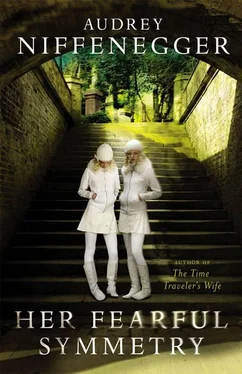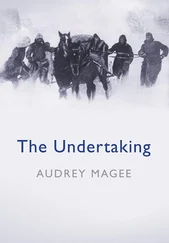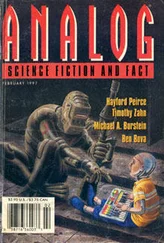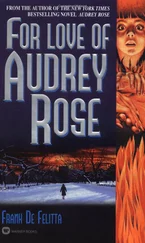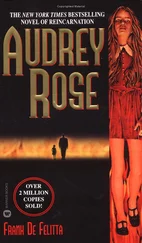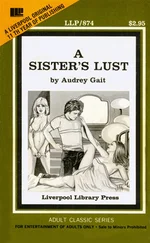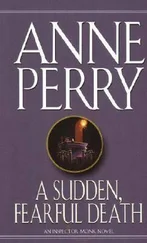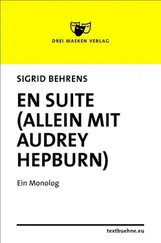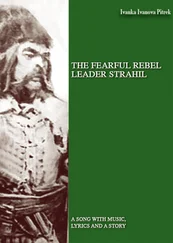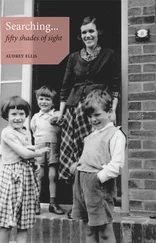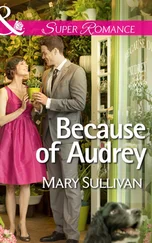Edie was sitting very straight in her chair; the twins each leaned forward, elbows on the table, chins in hands, Valentina listing sideways as Julia said, “But we never met her; why would she leave us anything? Why not you?”
Edie regarded them silently as Jack sat down in his chair. Julia said, “How come you never took us to London?”
“I did,” Edie replied. “We went to London when you were four months old. You met your grandmother, who died later that year, and you met Elspeth.”
“We did? You did?”
Edie got up and walked down the hall to her bedroom. She disappeared for a few minutes. Valentina said, “Did you go too, Daddy?”
“No,” said Jack. “I wasn’t too popular over there then.”
“Oh.” Why not?
Edie came back holding two American passports. She handed one to Valentina and the other to Julia. They opened the passports, stared at themselves. It’s weird to see new baby pictures. The stamps said HEATHROW AIRPORT, 27 APRIL, 1984 and O’HARE INTERNATIONAL AIRPORT, JUNE 30, 1984. They traded and compared the photos. Without the names it was impossible to tell which twin was in each photo. We look like potatoes with eyes, Julia thought.
The twins laid the passports on the table and looked at Edie. Edie’s heart beat fast. You have no idea. Don’t ask. It’s none of your business. Just let me be. Let me be. She stared back at them, poker-faced. “Why didn’t she leave it to you, Mom?” asked Valentina.
Edie glanced at Jack. “I don’t know,” she said. “You’d have to ask her.”
Jack said, “Your mother doesn’t want to talk about it.” He gathered the papers that were strewn across the table into a stack, tapped the bottom of the stack against the table to align it and handed it to Julia. He stood up. “What’s for breakfast?”
“Pancakes,” said Valentina. They all stood, all tried to segue into the normal Saturday-morning routine. Edie poured herself more coffee and steadied the cup with two hands as she drank it. She’s frightened, Valentina thought, and was frightened herself. Julia walked down the hall doing a little dance, holding the will over her head as though she were fording a rising river. She went into their bedroom and closed the door. Then she began jumping in place on the thick carpeting, her fists pounding the air over her head, shouting silently, Yes! Yes! Yes!
That night the twins lay in Julia’s bed, facing each other. Valentina’s bed was rumpled but unused. Their feet were touching. The twins smelled faintly of sea kelp and something sweet; they were trying out a new body lotion. They could hear the settling noises their house made in the night. Their bedroom was dimly illuminated by the blue Hanukkah lights they had strung around the wrought-iron headboards of their beds.
Julia opened her eyes and saw that Valentina was staring at her. “Hey, Mouse.”
Valentina whispered, “I’m afraid.”
“I know.”
“Aren’t you?”
“No.”
Valentina closed her eyes. Of course not.
“It’ll be great, Mouse. We’ll have our own apartment, we won’t have to work, at least for a while; we can do whatever we want. It’s, like, total freedom, you know?”
“Total freedom to do what, exactly?”
Julia shifted onto her back. Oh God, Mouse, don’t be such a mouse. “I’ll be there. You’ll be there. What else do we need?”
“I thought we were going back to college. You promised.”
“We’ll go to college in London.”
“But that’s a year from now.”
Julia didn’t answer. Valentina stared into Julia’s ear. In the semi-dark it was like a little mysterious tunnel that led into Julia’s brain. If I were tiny I would crawl in there and tell you what to do and you would think it was your own idea.
Julia said, “It’s only for a year. If we don’t like it we’ll sell it and come back.”
Valentina was silent.
After a while Julia took her hand, interlaced their fingers. “We’ve got to prepare. We don’t want to be like those dumb Americans who go to Europe and only eat at McDonald’s and speak English real loud instead of the local language.”
“But they speak English in England.”
“You know what I mean, Mouse. We need to study.”
“Okay.”
“Okay.” They shifted so that they lay side by side, shoulders touching, hands clasped. Valentina thought, Maybe in London we can have a bigger bed. Julia stared at the terrible Home Depot light fixture on the ceiling, mentally listing all the things they would need to find out about: exchange rates, vaccinations, soccer, the Royal Family…
Valentina lay in Julia’s bed thinking about the inside of Julia’s ear, how her own ear was the exact reverse, and if she pressed her ear against Julia’s and trapped a sound, would it oscillate back and forth endlessly, confused and forlorn? Would I hear it backwards? What if it was a London sound, like cars driving on the wrong side of the road; then maybe I would hear it forwards and it would be backwards for Julia. Maybe in London everything will be opposite from here…I’ll do what I want; no one will be the boss of me… Valentina listened to Julia breathing. She tried to imagine what she would do if it was just her, on her own. But she had never done anything on her own, so she struggled to formulate some kind of plan, and then gave up, exhausted.
Edie lay in bed waiting for Jack to fall asleep. Usually she tried to get to sleep first, because Jack snored, but tonight her mind was racing and she knew it was pointless to even try. Finally she turned onto her side and found Jack facing her with his eyes open.
“It’ll be all right,” said Jack. “They’ve been away before and it was all right.”
“This is different.”
“Because it’s Elspeth?”
“Maybe,” she said. “Or, just-it’s so far away. I don’t want them there.”
He put his arm around her waist and she burrowed into him. I’m safe. I’m safe here. Jack was her bomb shelter, her human shield. “Remember when they were at Cornell?” he said. “How great it was to have the house to ourselves?”
“Yeah…” It had been a revelation: married life without children was a blast. For a while, anyway.
“They’re twenty years old, Edie. They should have been long gone. We should have sent them to separate schools,” said Jack.
She sighed. You don’t understand. “It’s too late. Elspeth’s taken it out of our hands.”
“Maybe she’s done us a favour.”
Edie didn’t reply. Jack said, “When you were their age you were very eager to be on your own, as I recall.”
“That was different.”
He waited for her to continue. When she didn’t, he said, very quietly, “Why, Edie? Why was it different?” But she pressed her lips together and closed her eyes. He said, “You could tell me.”
She opened her eyes and smiled. “There’s nothing to tell, Jack.” She turned again, so she faced away from him. “We should try to sleep.”
That was close, he thought. He wasn’t sure if he was disappointed or relieved. “Okay,” Jack said. They lay together for a long time, listening to each other’s breathing, until Jack began to snore and Edie was alone with her thoughts.
T HE INVENTION of the Internet had allowed Martin to abandon the outside world. Or rather, the Internet had enabled him to relegate that world to the role of support system for his world, the one that flourished inside his flat.
Martin had not expected Marijke to leave him. She had acquiesced in his rituals, had aided and abetted his increasingly stringent compulsions, for almost twenty-five years. He couldn’t understand why she would leave now. “You are like a bad pet,” she’d told him. “You’re like a human squirrel that never goes out, that just sits in the flat all day and all night, licking the same spot. I want to be able to open the windows. I want to walk into my own flat without having to put bags on my feet.” They’d had this conversation in the kitchen. The windows were taped shut and papered over, and both of them were wearing plastic bags over their socks. Martin was empty-handed; he had nothing he could use to counter Marijke’s assertion. He was a human squirrel and he knew it. But who would take care of him if she left? “You’re a fifty-three-year-old PhD with a telephone and a computer. You’d be fine. Get Robert to take out the rubbish.” Two days later, Marijke was gone.
Читать дальше
